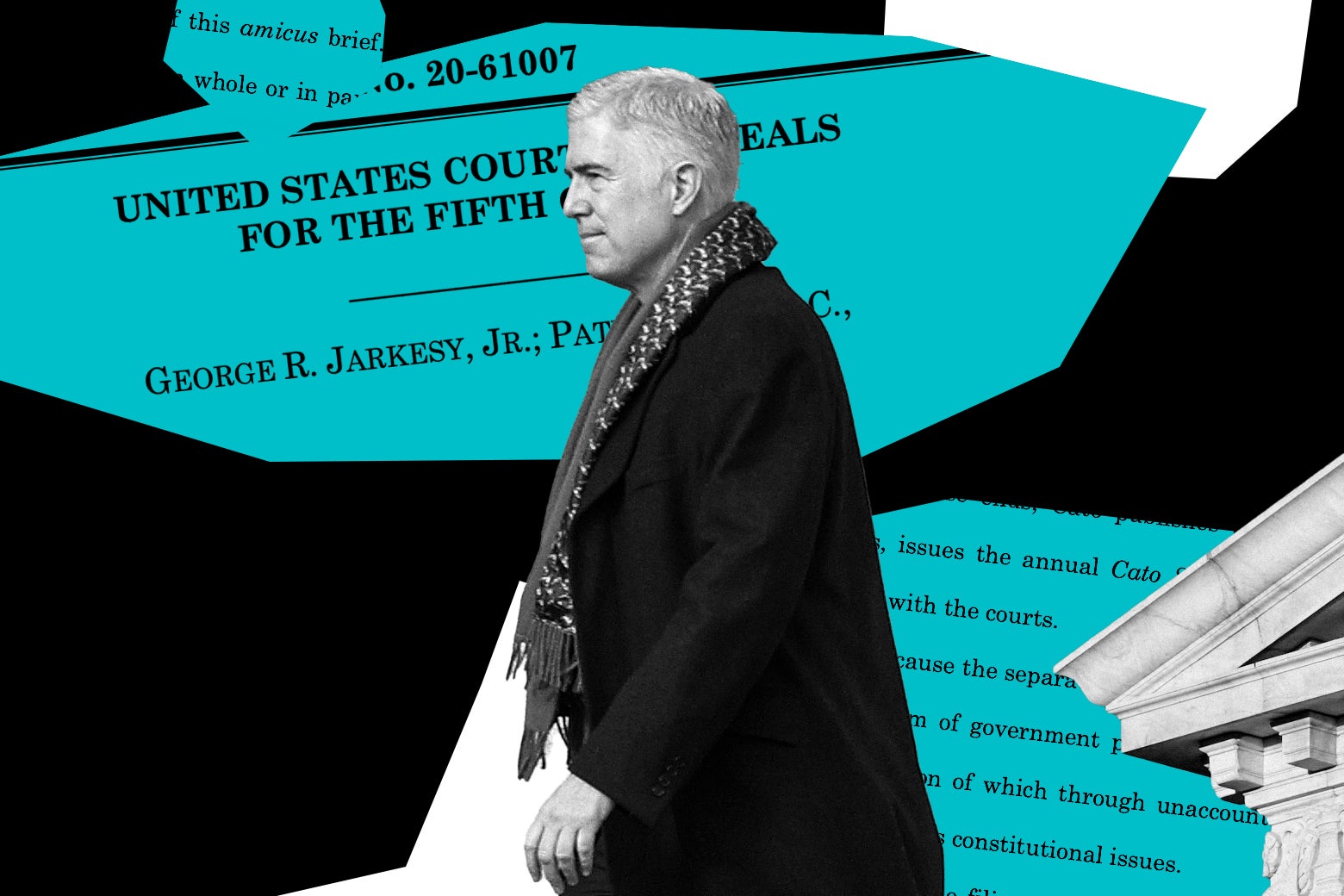Welcome to DU!
The truly grassroots left-of-center political community where regular people, not algorithms, drive the discussions and set the standards.
Join the community:
Create a free account
Support DU (and get rid of ads!):
Become a Star Member
Latest Breaking News
Editorials & Other Articles
General Discussion
The DU Lounge
All Forums
Issue Forums
Culture Forums
Alliance Forums
Region Forums
Support Forums
Help & Search
General Discussion
Showing Original Post only (View all)The Supreme Court Has Figured Out How to Gut a Bunch of Crucial Federal Laws at Once [View all]
The Supreme Court Has Figured Out How to Gut a Bunch of Crucial Federal Laws at Once
Photo illustration by Slate. Photos by Joe Raedle/Getty Images and Unsplash.
The catastrophe that unfolded at the Supreme Court on Wednesday morning was so suffused with infuriating bad faith that even Justice Elena Kagan, the model of a disciplined jurist, could not stand it. For nearly 50 years, Kagan declared, “no one has had the chutzpah” to make the argument before the court that the Securities and Exchange Commission had no right to fine wrongdoers—an anti-historical, anti-textual theory that would hobble the federal government’s ability to enforce statutes that protect the public from harm. No one, that is, until Wednesday, when six conservative justices lined up to endorse the theory, telegraphing their intention to kneecap the SEC and other agencies that impose regulations against lawbreakers.
The case, Jarkesy v. SEC, is complicated in the details but pretty simple in the end. It asks whether federal agencies can continue to do something that they’ve done for more than a century and that no court (including SCOTUS) has ever forbidden: adjudicate the government’s claims against a private party for violating “public rights” established by Congress. Do you think that securities fraud, consumer scams, environmental crimes, labor violations, and a ton of other misdeeds should be efficiently and consistently penalized? Then you are out of luck, because the Supreme Court is poised to strip much of that enforcement power from the federal government.
George Jarkesy’s case provides an unsympathetic vehicle for this long-standing conservative project. A right-wing talk-radio host, Jarkesy created two hedge funds that managed $24 million in assets. He and his firm lied to their 120 investors about where their money was going while dramatically overvaluing holdings to justify extortionist management fees. The SEC launched an administrative proceeding, adjudicated before an administrative law judge at the agency, and prevailed. The agency fined Jarkesy $300,000, barred him from participation in the securities industry, and ordered him to give up nearly $685,000 in unlawful gains.
This kind of thing happens every day across the government. It’s a key foundation of federal law enforcement, one of Congress’ favored methods of protecting the American people. Yet Jarkesy argued that the entire process was unconstitutional. He raised three challenges: First, he argued that the SEC’s adjudication violated his Seventh Amendment right to a jury trial; second, that the administrative law judge’s independence violates the president’s executive authority; and third, that the SEC’s ability to decide where it would bring the case—within the agency or in federal court—violates the nondelegation doctrine. The U.S. Court of Appeals for the 5th Circuit endorsed all three claims in an opinion that proudly flouted multiple, unbroken lines of Supreme Court precedent.
InfoView thread info, including edit history
TrashPut this thread in your Trash Can (My DU » Trash Can)
BookmarkAdd this thread to your Bookmarks (My DU » Bookmarks)
9 replies, 1765 views
ShareGet links to this post and/or share on social media
AlertAlert this post for a rule violation
PowersThere are no powers you can use on this post
EditCannot edit other people's posts
ReplyReply to this post
EditCannot edit other people's posts
Rec (18)
ReplyReply to this post
9 replies
 = new reply since forum marked as read
Highlight:
NoneDon't highlight anything
5 newestHighlight 5 most recent replies
= new reply since forum marked as read
Highlight:
NoneDon't highlight anything
5 newestHighlight 5 most recent replies
The Supreme Court Has Figured Out How to Gut a Bunch of Crucial Federal Laws at Once [View all]
In It to Win It
Nov 2023
OP
The goal is to break up the US federal government. To become 50 nation states.
Irish_Dem
Nov 2023
#1
And the american public wonders why the country is going down into a third world state
turbinetree
Nov 2023
#2